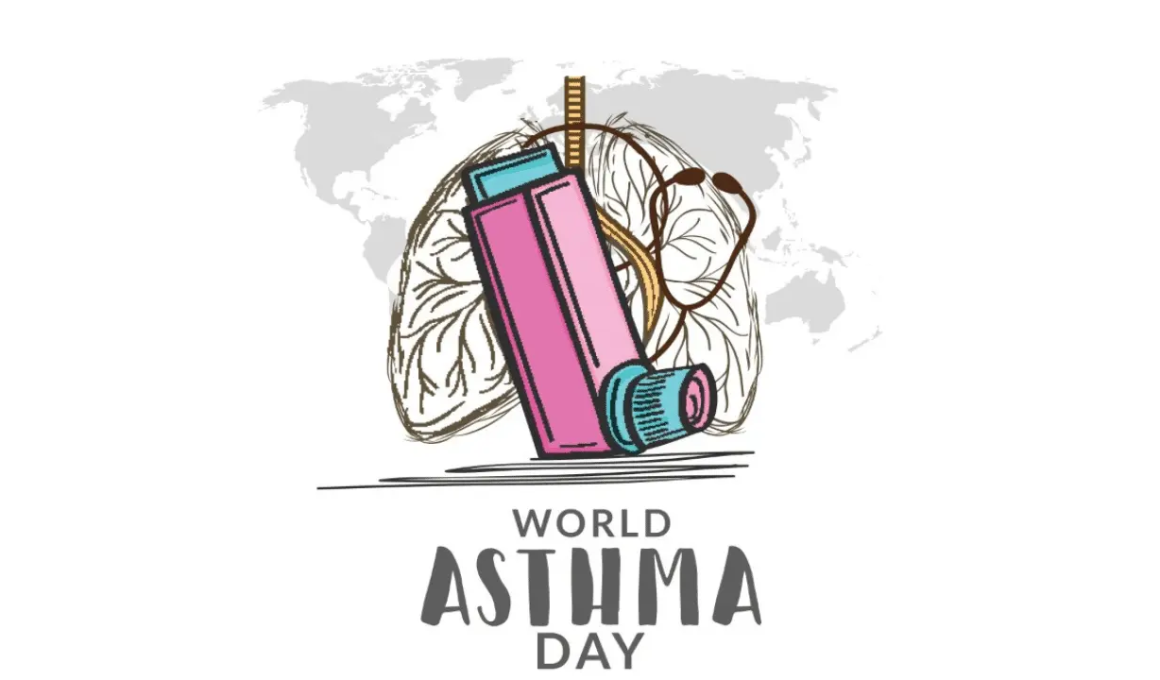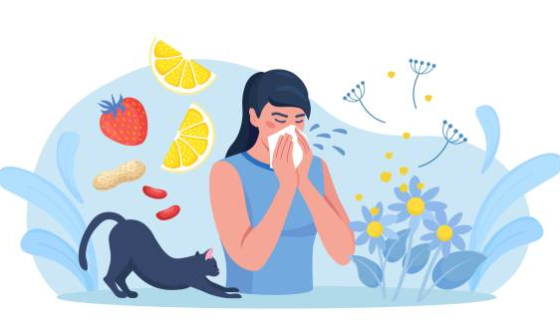Every year on the first Tuesday in May, the Global Initiative for Asthma (GINA) in collaboration with the World Health Organization (WHO) celebrates World Asthma Day. World Asthma Day is an initiative whose objective is to raise awareness about asthma and its impact on millions of people worldwide.

This year’s theme,” Asthma Education Empowers”, brings to focus the need to educate individuals in the management of asthma and to effectively empower people living with asthma to live long and happily. In this article, Wellahealth explores the importance of asthma education and its effect on individuals living with asthma.
What is Asthma?
Asthma is a chronic potentially life-threatening respiratory condition that causes inflammation and narrowing of the airways, leading to wheezing, coughing, chest tightness, and shortness of breath. Additionally, asthma cause is complex and can be genetic or environmental.
According to GINA, asthma is one of the most common chronic non-communicable diseases that affects over 260 million people and is responsible for over 450,000 preventable deaths each year worldwide.
While there’s no cure, asthma can be effectively controlled with proper medication and lifestyle management. Furthermore, the key to effective management lies in understanding the condition and its triggers. This is where education steps in, becoming the cornerstone of an empowered approach to living with asthma.
Management of Asthma

Source: Amandeep Hospital
- Medication: Medications are the gold standard of asthma treatment. Inhalers are the mainstay of asthma treatment. There are two main types; Relievers (bronchodilators) and preventers (anti-inflammatory drugs). Bronchodilators Act quickly to relax airway muscles and open them up during an asthma attack, providing relief of symptoms whereas anti-inflammatories reduce inflammation in the airways over time, preventing asthma attacks and improving overall lung function. Relievers are taken for acute cases, while preventers are taken regularly.
- Identification of Triggers: Triggers are irritants or allergens that worsen asthma symptoms. Common triggers include Allergens (dust mites, pollen, pet dander, mold), Irritants (smoke (including secondhand smoke), air pollution, strong cleaning chemicals), and Others (certain foods, medications, exercise).
Once triggers are identified steps should be taken to minimize exposure. For allergens, the use of allergy-proof bedding and air purifiers is advised. For irritants, asthmatics should avoid smoking and secondhand smoke, reduce exposure to pollutants, and use appropriate ventilation when using cleaning products. Individuals with food triggers must maintain a diary to identify and avoid problem foods.
Additionally, asthmatics are advised to quit smoking and avoid areas that predispose them to second-hand smoking. Lastly, individuals with exercise-induced asthma must always carry their inhaler and speak to a health care provider about exercise modification.
- Lifestyle modification: Individuals living with asthma are to maintain a healthy weight as obesity can worsen asthma symptoms. A healthy diet rich in fruits and vegetables can improve overall health and may help with asthma control. Stress can also trigger asthma attacks. Regular physical activity can also improve overall health and lung function. However, people with exercise-induced asthma should discuss an appropriate exercise plan with their doctors.
Overall regular checkups are necessary to monitor asthma.
How does education affect asthma management?
Education is the cornerstone of an empowered approach to living with asthma. Education is not for only those affected by the condition but also for caregivers, families, and society.
- Enhancing knowledge of causes and triggers: Education enhances the knowledge of individuals living with asthma about the causes and triggers of their chronic condition. With education, they can identify their unique triggers; dust mites, pollen, pollution, or even exercise. With this knowledge and awareness, asthmatics can proactively avoid or minimize exposure, significantly reducing the frequency and intensity of asthma attacks.
- Understanding medications: Education empowers people with asthma and their caregivers about medications, applications, and regimens. Education ensures the proper use of inhalers and other medications, ensuring an important factor in the management of asthma.
- Equipping with exercises for management: Education equips patients with exercises for symptom management. This knowledge translates to increased confidence and control over their condition. Exercise techniques like controlled breathing exercises can help alleviate symptoms during an attack and improve lung function overall.
Overall, education enables families and caregivers to understand the challenges facing individuals with asthma, as this fosters support and ensures proper medication administration. World Asthma Day public awareness helps dispel myths and misconceptions about asthma, creating a more inclusive and supportive environment.
Role of Community-based Education
Community-based asthma education initiatives raise awareness, reduce stigma, and promote asthma-friendly environments where individuals feel supported and empowered to thrive.
These communities include schools, workplaces, places of worship, healthcare facilities, and community organizations, asthma education is essential in these places as it ensures that everyone has access to asthma education resources and support networks. This reduces the stigma, especially for asthmatics who may go into crisis in these communities.
Community-based education allows bystanders during an asthmatic attack to know firsthand how to help people living with asthma in cases of emergency. This education overall decreases the mortality rates from asthma.
The influence of telemedicine on asthma management
Telemedicine is a remote clinical service, done in real-time where communication between the healthcare provider and the patient is done via electronic information and communication devices. Wellahealth Africa provides telemedicine care for subscribers, improving healthcare accessibility for Africans.
Wellahealth Africa has consistently used telemedicine in the management of chronic diseases like hypertension and diabetes. Telemedicine can also be used in asthma care, particularly in remote or rural areas where access to specialized healthcare services may be limited.
Through our virtual consultations, monitoring, and education initiatives, individuals with asthma can receive expert guidance, education, and support from the comfort of their homes. This reduces the need for in-person clinic visits and improves overall health outcomes for people with asthma.
Conclusion
As the world commemorates World Asthma Day under the theme “Asthma Education Empowers,” Wellahealth Africa recognizes the impact of education in empowering individuals to live well with asthma. With education, those affected with asthma and individuals around those living with asthma during a crisis are equipped with knowledge and resources that drastically reduce the deaths from this disease and empower individuals to live long and great lives.
With Wellahealth Africa insurance plans management of chronic diseases gets better as appropriate and affordable care, discounted medications, and resources are always provided when you subscribe to our plans. Our plans go for as low as #600 monthly, to subscribe, contact us on WhatsApp today.
Dr. Ifeoma Uduh
Source: Adda24/7






